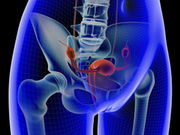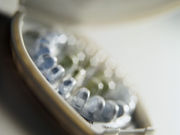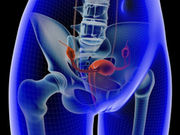Tag: Birth Control
New ACOG Guidance on Long-Acting Reversible Contraceptives
Insertion of IUD should be offered after first-trimester uterine aspiration, on same day as abortion
Lidocaine Nerve Block Reduces Pain During IUD Insertion
Pain score lower among patients who receive lidocaine than those who receive placebo
Oral Contraceptive Use Linked to Lower Rheumatoid Arthritis Risk
Risk of RA down, especially ACPA-positive RA, where interaction with smoking was seen
ACOG Issues Guidelines for Teen Contraception Counseling
Ob-gyns should address contraceptive needs, expectations, and concerns, regardless of patient age
Birth Control Pills Recalled Due to Danger of Unintended Pregnancy
Blister pack is rotated 180 degrees within the wallet, reversing the weekly tablet orientation
CDC: United States Still Faces Too Many Repeat Teen Births
Too few teens use the most-effective birth control after having a first baby
Contraceptive Use Up for Women With Congenital Heart Disease
Barrier, oral contraception methods are preferred; <50 percent receive contraception counseling
Low Thromboembolism Risk for Contraceptive Use in Diabetes
Among women with diabetes, lowest rates seen with use of intrauterine and subdermal contraceptives
Naproxen Sodium Doesn’t Reduce Pain With IUD Insertion
No decrease in pain with intrauterine device insertion, but reduction noted in pain after insertion
Male Contraceptive Effective, but Side Effects Problematic
Injections as effective as other contraceptives, but side effects prompted early halt of trial














